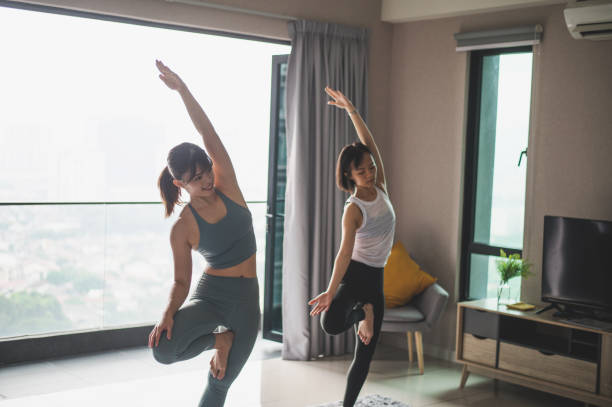The #1 Rated Blood Sugar Formula
6 Exercises That People with Hypertension Should Try

Exercise lowers blood pressure by reducing blood vessel stiffness so blood can flow more easily. The effects of exercise are most noticeable during and immediately after a workout. Lowered blood pressure can be most significant right after you work out.
Normally during exercise, blood pressure increases to push the flow of oxygen-rich blood throughout the body. However, in some individuals, the response to exercise is exaggerated. Instead of reaching a systolic (upper number) blood pressure of around 200 mmHg at maximal exercise, they spike at 250 mmHg or higher.
1. Brisk walking:
Walking is the simplest form of exercise that you can start with if you are diagnosed with hypertension. It is also one of the most recommended exercises to control blood pressure levels, especially among people between 50-60 years of age. Brisk walking is a moderate-intensity aerobic exercise that involves the use of larger muscle groups and consumes enough energy to also trigger weight loss. A 30-minute daily dose of brisk walking is optimum for controlling BP levels. Once you have developed a certain degree of stamina, you could add jogging to your routine a couple of times in a week.2. Swimming:
Another exercise that involves large muscle groups and burns a fair amount of calories is swimming. Besides, swimming is good for relaxing and de-stressing, if you have hypertension. It especially works wonders among older adults who complain of knee joint pain during other exercises like walking or jogging. Not only does it improve the functioning of the blood vessels, but it also keeps the body cool, which may fluctuate while exercising.3. Daily activities like household chores:
If you are one of those who find it difficult to make time for enrolling yourself in a fitness program, then you could start by identifying aerobic activities within your daily schedule and turning them into your exercise routine. You could take the stairs to reach your office or your home instead of taking the elevator. Climbing stairs increases cardiac output and improves the flow of blood through the blood vessels. Apart from that, some household chores like cleaning and gardening also contribute to physical activity that can help you in managing hypertension.4. Dance fitness:
If you love dancing, and if music is your motivation to exercise, then you must try the new age dance fitness programs that are gaining popularity. Zumba, a dance exercise program, has shown remarkable benefits in people with hypertension in a wide age group (ranging from 25 to 55-year-olds). The program involves moderate to high-intensity aerobic activity and aims at improving cardiovascular endurance, imparting strength and overall fitness.5. Resistance training:
It is a misconception that people with hypertension should avoid resistance or strength training programs as a form of exercise. Though any exercise tends to increase your heart rate and blood pressure while doing the exercise, in the long run, it helps with improving heart health and blood pressure. Studies have shown a reduction in blood pressure by 4-5 mm Hg in people with hypertension. So, with appropriate guidance, it would be highly beneficial to engage in training programs like Pilates or High-Intensity Interval Training (HIIT) to lower your blood pressure.6. Yoga:
Some studies have shown that the practice of yoga has been found to bring about a reduction in high blood pressure.. The flow of yoga postures with breathing exercises aims at improving flexibility, balance and strength. Certain postures in yoga are meant to improve blood circulation and breathing. The practice of yoga and meditation has also shown significant effects on the reduction of stress levels, which is considered one of the major contributing factors that can worsen hypertension.benefits of exercise to blood pressurebest exercises to lower Blood Pressurebrisk walking helps lower blood pressuredance fitness and blood pressureExercise and Blood Pressureexercising and blood pressureGood Practice for Hypertensionisometric resistance training for hypertensionResistance Training Guidelines for Hypertensionswimming and blood pressureyoga for high blood pressure





